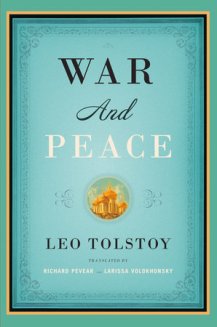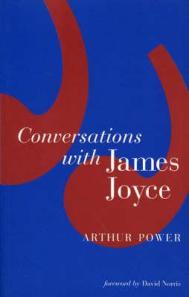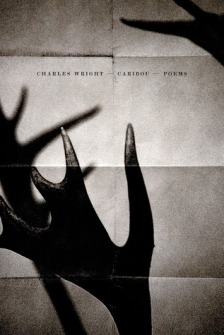
Can War and Peace by Leo Tolstoy really be called a novel? Sure there’s fiction, but there’s also history, philosophy, and what very much feels like Tolstoy stopping by to tell you how he feels about the world.
My initial thought upon finishing the 2nd epilogue was, “I finally finished.”
Then, “I think I need to read it again.”
For the few who don’t know much about War and Peace, it’s one of those gigantic Russian classics that many don’t read because of the length and style.
The book follows the Napoleonic wars and a series of created characters. While I loved the storyline and characters, what this book is really about is an idea – or question.
What causes man to war?
I find the concept that we don’t truly know why man wars intriguing. It opened my eyes to the realization that what we know of the past is through biased information and that a heroic figure might seem like the cause of a revolution, but we don’t really know if they are actually the cause of movement in people. Tolstoy even disregards the idea of ideas being the cause of movement.
Tolstoy’s answer to the question points to the divine as an unseen and unknown cause.
Highly recommend. Don’t be daunted by the length – I began in January and there were times I didn’t have the time to pick it up for weeks. It was worth it.

I have a love for James Joyce, so when I saw a copy of Conversations with James Joyce by Arthur Power in a secondhand bookshop, I didn’t hesitate to pick it up.
Power was friendly with Joyce while living in Paris in the 1920s. Joyce, a man who largely to himself, still keeps to himself most of this book. It’s a recollection of snippets of conversations Power had with Joyce about Art.
To really get into it, you’d have to be really well read because most of the talks are about opinions of various writers.
Some of it I wasn’t able to enjoy simply because I hadn’t read, or even heard of, some of the writers and their works.
I’m one of those people who admire Joyce without even having read his major works (I’ll get to them…) It’s his person I find fascinating. Some may say he’s a snob or simply full of himself, and I say so what.
His concept for Art is basically this: youth breeds romantics, but maturity has to breed mature work. Oh, and break the rules of writing.

Caribou: Poems is the third collection of poetry I’ve read by Charles Wright. I’ve loved his work since the first.
His poetry breathes life into the small things of the world but inputs grand ideas into them. The simplicity of darkness doesn’t just have a grander meaning – that would be easy – what I love is that he has the ability to use an overrun phrase like darkness for something with a deeper meaning and have it work so well.
At the same time his lines are so unique.
This specific collection is like a series of letters from wright about old age and death. There are conversational lines in which it seems Wright is speaking to you and to himself.
One of my favorite lines comes from the poem Everything Passes, But Is It Time? – “Your heart conflicted, you’re footfalls sure.”
A lot of his lines have what I’ll call a “bounce effect,” (but I’m sure there’s an actual term for it.) In a different collection there’s a line that goes “heart and heart beat.”
There are parallels in sound and ideas. They bounce off each other.
These aren’t reviews, just musing on some of the books I read this month.
Have you read any of these? If so, what did you think about them? If not, what books have you read?
Find me on Instagram @rekrap_haraz

Wow! What an eclectic and deep collection of books. I read Ulysses for school, but that’s all I know about Joyce. As for War and Peace, I haven’t read it, but saw Natasha, Pierre and The Great Comet on Broadway a few years ago based on characters. It was wonderful. You might enjoy reading about it or listening to it,
LikeLiked by 1 person
Oh I haven’t heard of that before. I’ll have to check it out!!
LikeLike
Which edition of War and Peace did you read? Also, physical copy or kindle?
I would highly recommend Les Miserables if you’ve never read it, and The Count of Monte Cristo (the unabridged versions)
LikeLiked by 1 person
I read the Richard Pevear and Larissa Volokhonsky translation (the one pictured.) It’s a physical copy. I can’t imagine trying to read that on a kindle 😅
Those to books have been on my radar, so I’m sure I’ll read them eventually!
LikeLiked by 1 person
Very nice. I added it to my amazon wishlist. Thanks for the “review”
LikeLiked by 1 person
Cool! 💥
LikeLike
I read them years ago and enjoyed every one. Books were written differently way back then and in some ways might be better.
LikeLiked by 1 person
In a lot of ways I tend to think the way books used to be written is better!
LikeLike
I haven’t read Tolstoy but I have read, just recently, the Brothers Karamazov by Dostoevsky. When I say I’ve read it, I mean to say that I’m still in the process of reading it, but I had to put it down because it’s not an easy book to read. It’s so dense with narrative and meaning that is not obvious to me.
I’ve picked up Anton Chekhov just this week and I’m enjoying him much more. His short stories are visual and his style (at least in its translated form) is more accessible to me and I’m finding them moving and thought provoking.
I’d like to pick up some James Joyce in the future. I keep hearing him mentioned.
LikeLiked by 1 person
I currently have Brothers Karamazov on my bookshelf haunting me 😅 I was supposed to read it a few years ago. I also have a collection of short stories by Chekhov! I’ve only been able to read a few but I think you’re right. He’s much more accessible.
I never thought I’d be so into Russian literature, but after reading Crime and Punishment I’ve found their style so unique.
As for Joyce I’d recommend his short story collection, Dubliners, to start with.
LikeLiked by 1 person
Thank you Zarah! I definitely keep that in mind. Chekhov has been in the periphery of my consciousness for ages but I never picked up his work until very recently. I was inspired to do so from a line in Amor Towles’ “A Gentleman In Moscow” which is just a gorgeous book.
I have a bit of an addiction to Russian literature. It challenges the heck out of me but I can see its beauty.
LikeLiked by 1 person
I can relate to the Russian literature addiction 😅
LikeLiked by 1 person